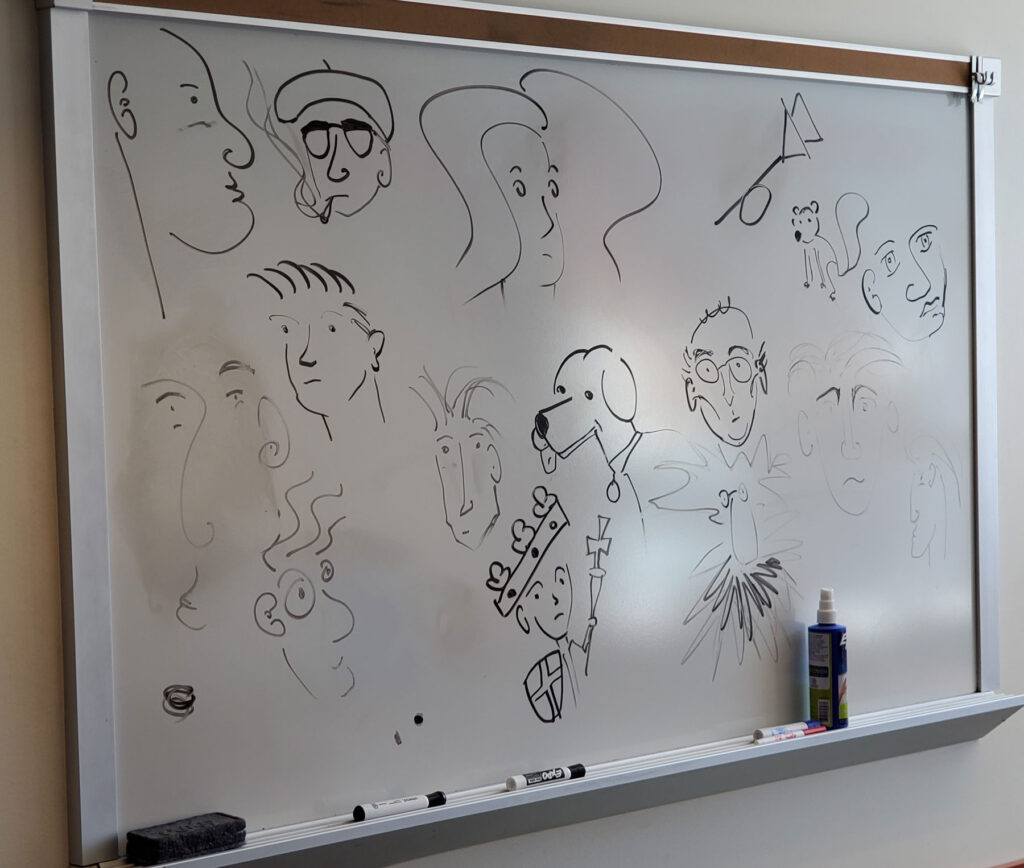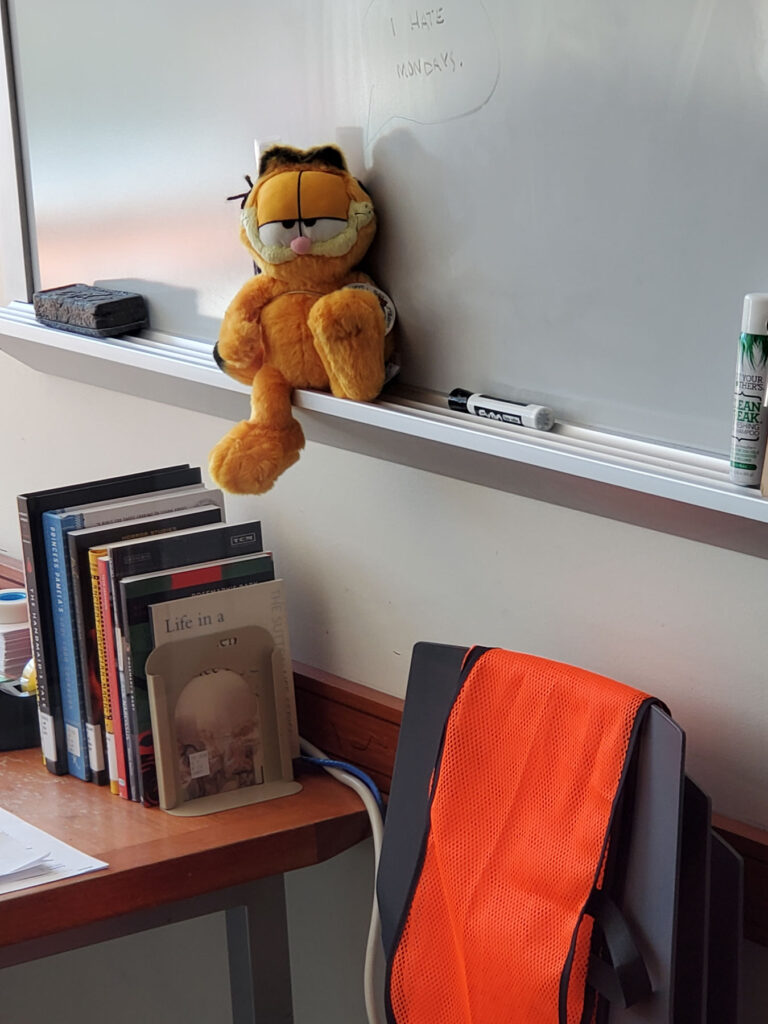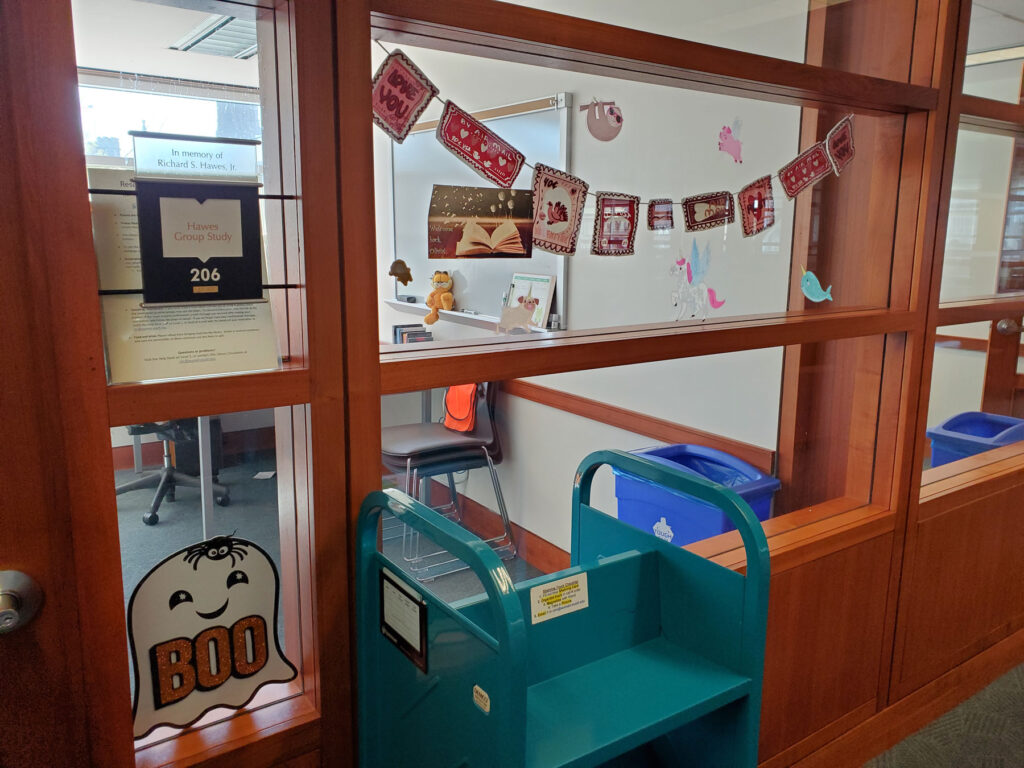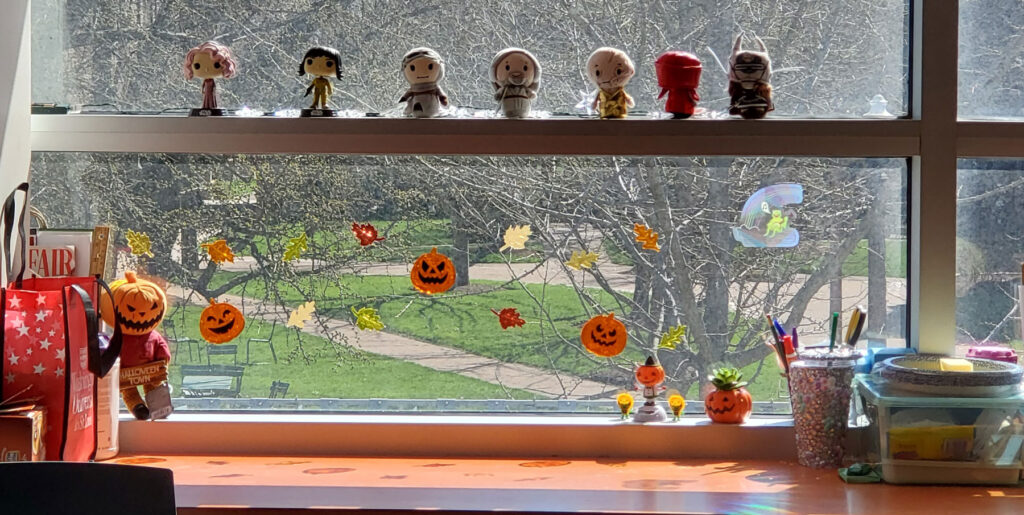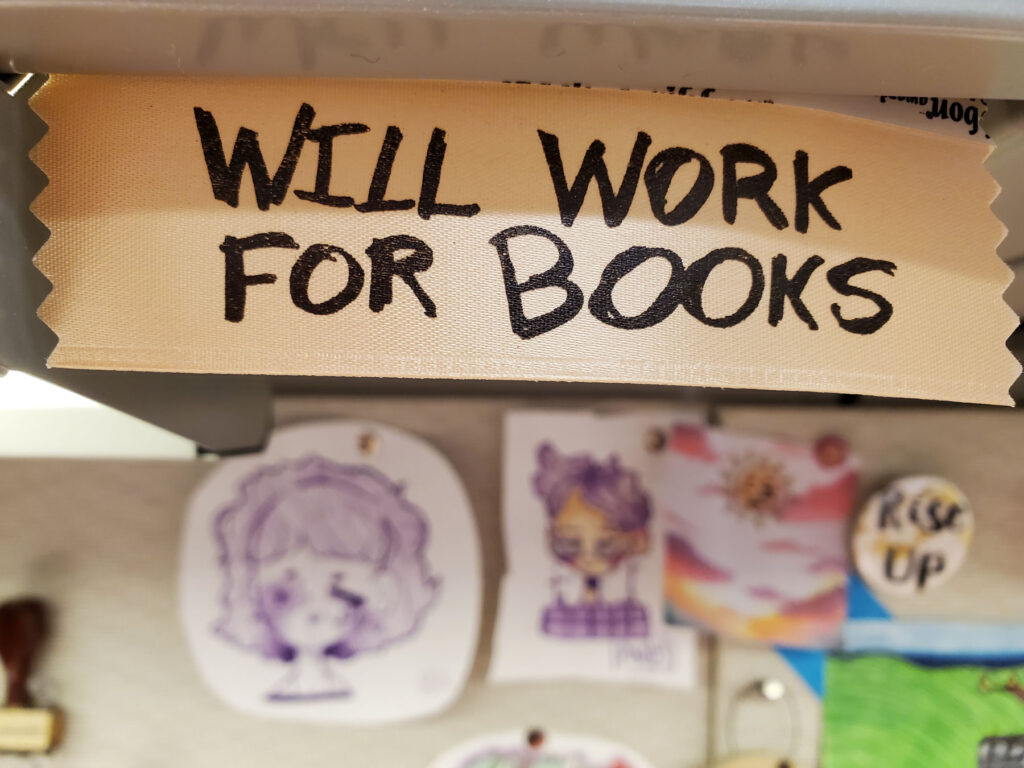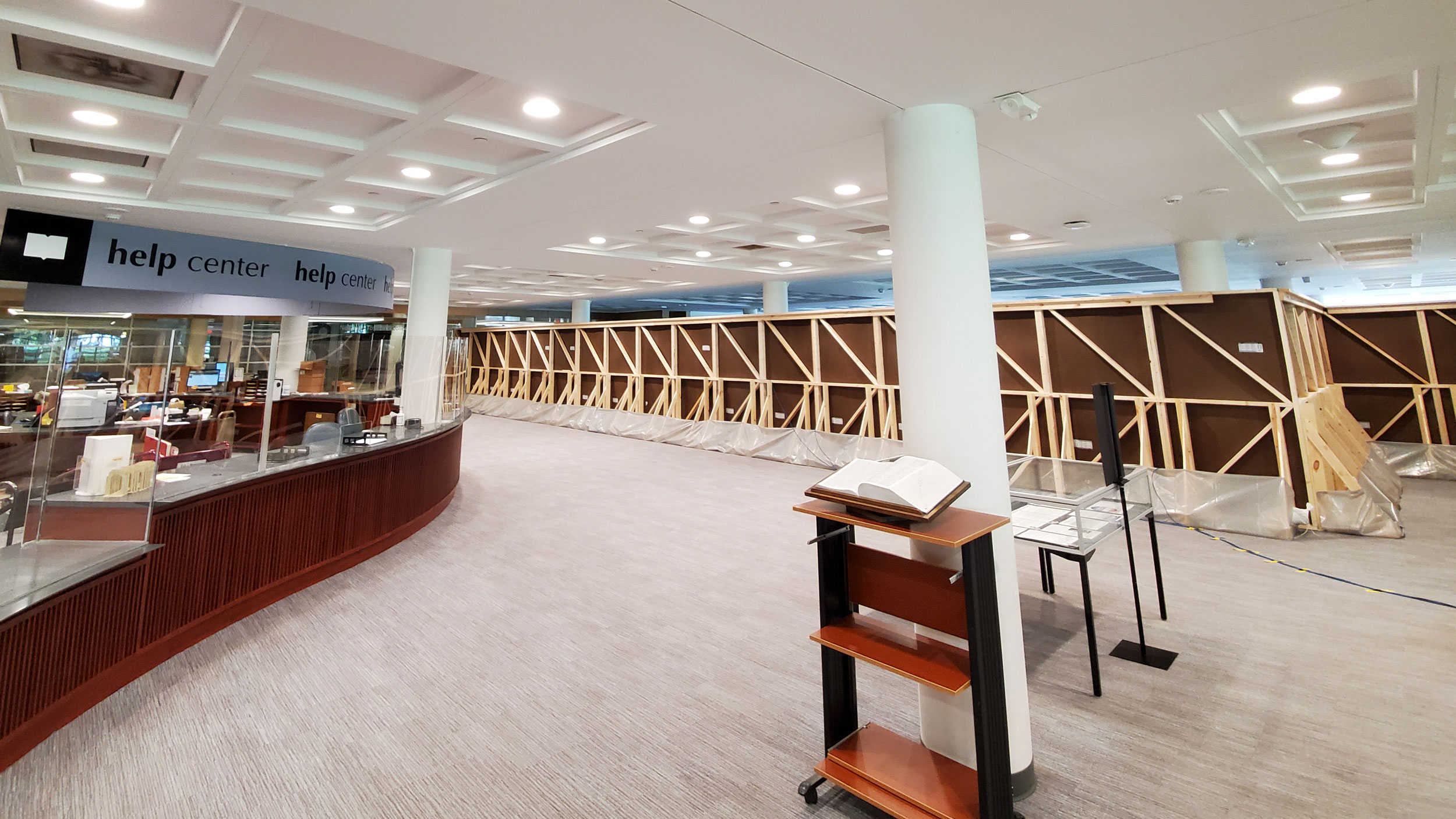
Library Life During the Pandemic
During Washington University’s period of remote learning, the Washington University Libraries adapted operations in order to continue serving users. Here’s a behind-the-scenes look at the work that took place in Access Services at John M. Olin Library during that time.
Safety comes first
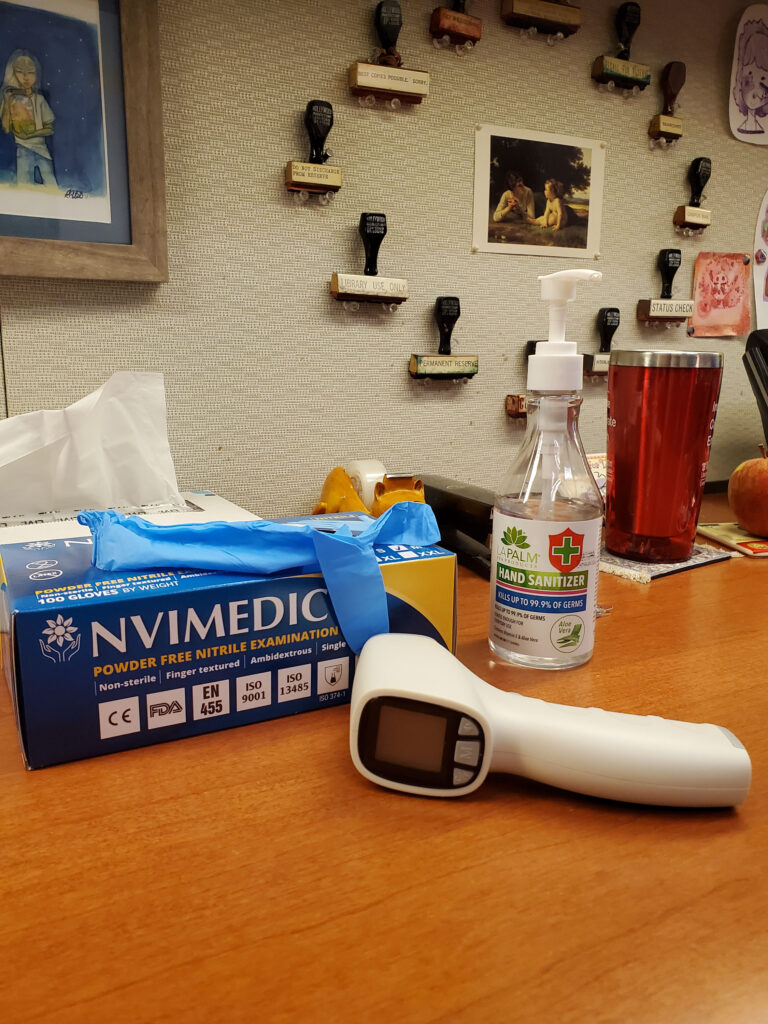
All University Libraries staff members, including those in Access Services, screened for symptoms and COVID exposure before they arrived at Olin Library. We were diligent mask wearers, surface cleaners, and frequent hand washers. I am proud to report that Access Services did not have to shut down operations due to staff quarantine or illness. Some of our peer institutions were not so lucky in that regard.
Upholding safety measures means that we shared the building, but we didn’t share spaces. We limited occupancy by scheduling tasks in common areas like the book stacks, the Help Desk, and spaces that are used for material sorting, receiving, and shipping. We passed materials from one process to another via carts outside office doors. We spent most of the day in our offices, including group study rooms formerly used by students.
Communication is key
We met virtually even when our work areas were just a few feet away from each other. A typical week on my calendar included 12-15 virtual meetings. Some were short, and some were long. Some were casual. Some were agenda-driven. All were necessary.
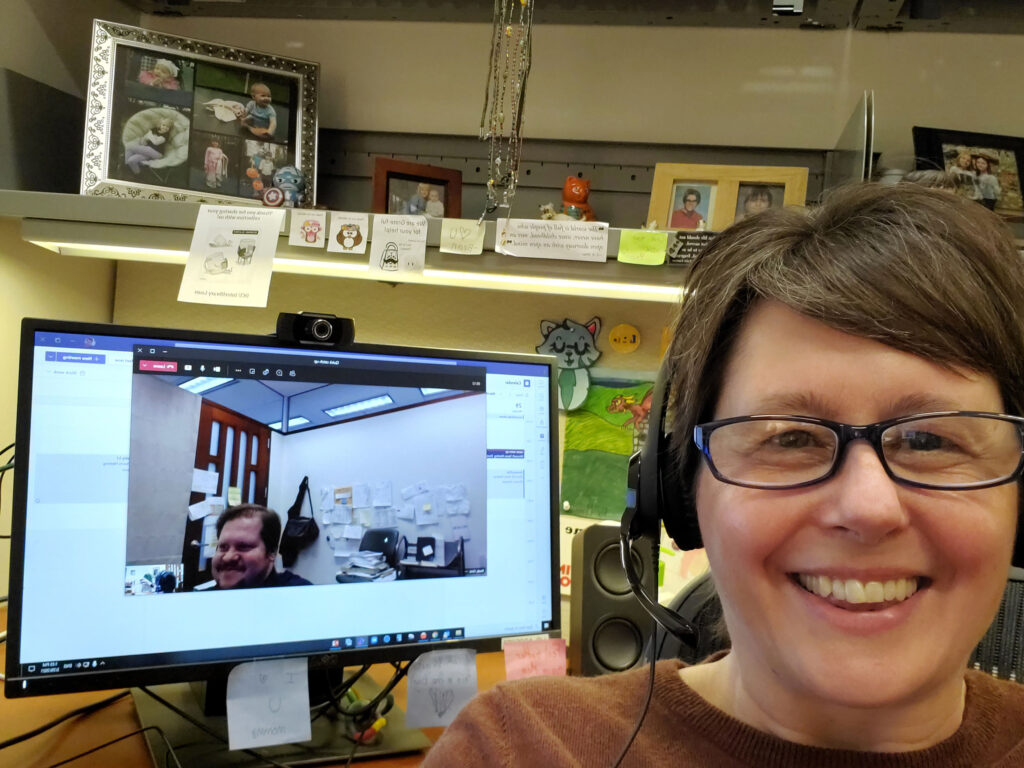
When a conversation didn’t require a meeting, staff members messaged each other on Microsoft Teams. We asked quick questions or favors of each other, posted important news, sent words of encouragement, and generally supported each other in any way that we can. Someday soon we’ll be able to have face-to-face meetings and hallway conversations, but until then, this keeps us connected from a safe distance.
Curbside pickup
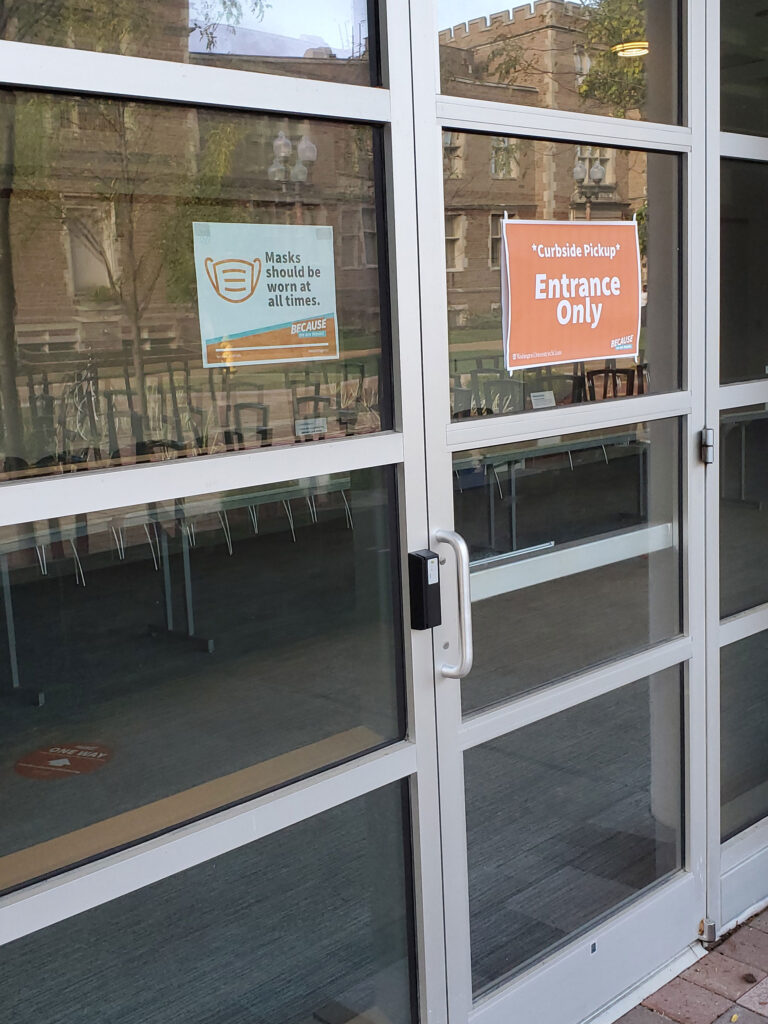
Many patrons picked up library materials via our contact-free curbside pickup service. From July 2020 to the end of June 2021, Access facilitated 9,663 appointments, distributing 27, 351 items. Patrons broke down to include 61% students, 30% faculty, and 9% university staff.
Getting down to work
Curbside pickup represented our public-facing custom service, but Access also worked behind the scenes with internal customers in other library departments. We worked with Acquisitions and Support Services to tackle a large backlog of new book shipments. Our book vendors were holding nearly 3,000 items until we gave them the green light to resume shipping to us. We finished the backlog in early January.
When Access returned to campus last June, the backlog was monumental. There was a long line of book carts and bins that snaked around the department. Carts were overflowing with U.S. mail and FedEx packages. We got to work. We discharged materials from patron accounts. We waived overdue fines that had accrued. We returned materials to our distributed libraries. We shipped interlibrary loan materials back to their home universities. And we shelved a lot of books in Olin!
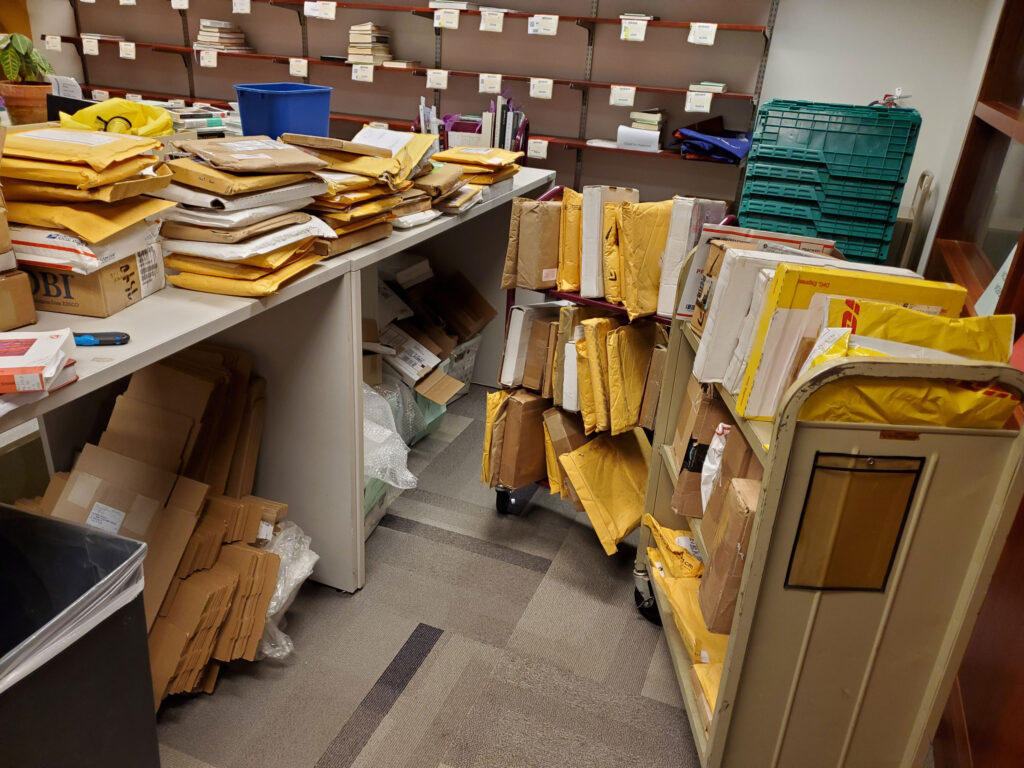
Reaching out to patrons
Even after all that work last summer, many library items were not returned. Access staff spent significant time during the fall semester reaching out to patrons about overdue materials. We encouraged patrons who returned to St. Louis last fall or who live in the area to return materials via drive-up book drops.
During lockdown, some students took library materials home to locations throughout the US and across the globe, and then didn’t return to St. Louis. For these students, Access extended due dates, waived fines, and did our best to avoid any penalties.
Some library materials were left in dorm rooms. Those items were packed up by local moving and storage companies. Access staff negotiated with Residential Life and the storage companies to retrieve library materials that had been left in dorm rooms.
We worked with the university’s insurance department to be reimbursed for materials lost while in university storage. We also emailed and called partner libraries to retrieve books we loaned to their patrons.
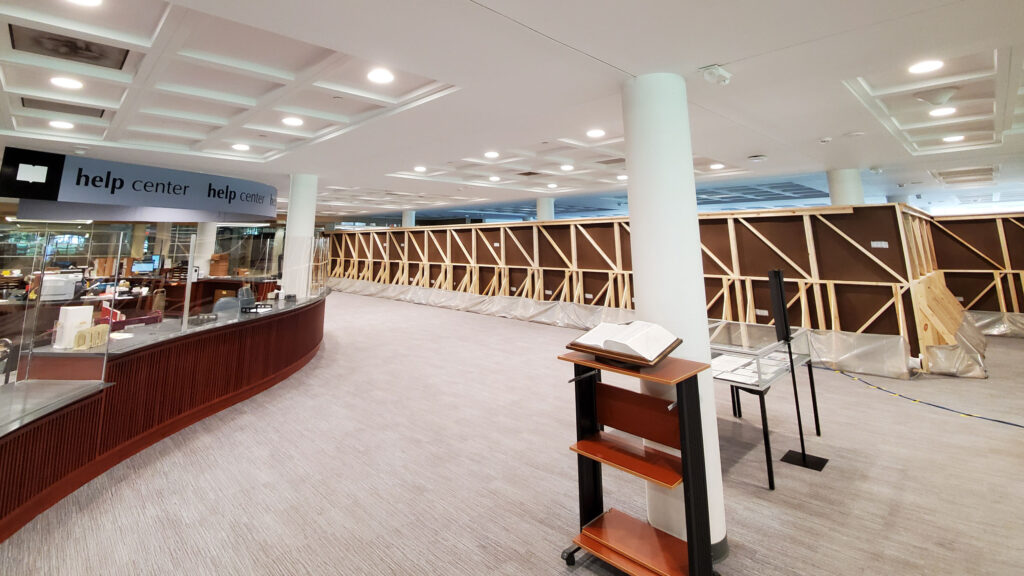
Embracing the temporary
The tempo and pace in Access Services were certainly different this past year. We have been focused on behind-the-scenes work, and we miss the hustle and bustle of the Help Desk. But for now, we’ve learned to embrace our environment, including galleries that are empty, temporary walls that will eventually come down, and quiet or darkness in spaces that were once busy.
Until it’s time to gradually welcome everyone back, Access enjoys the little things. We decorate our spaces. We doodle. We work hard. And at the end of the day, we head home so that we can come back tomorrow and do it all over again.
